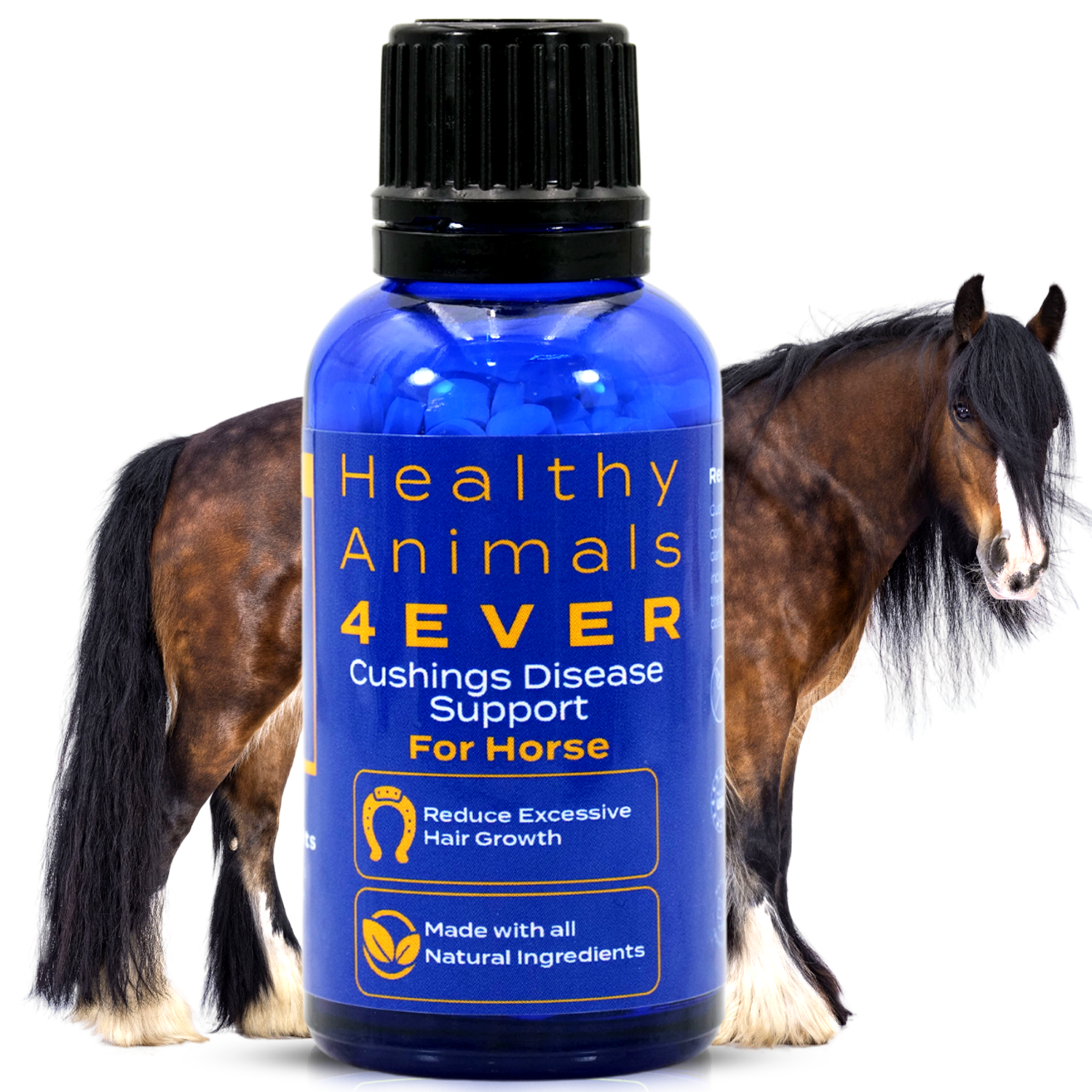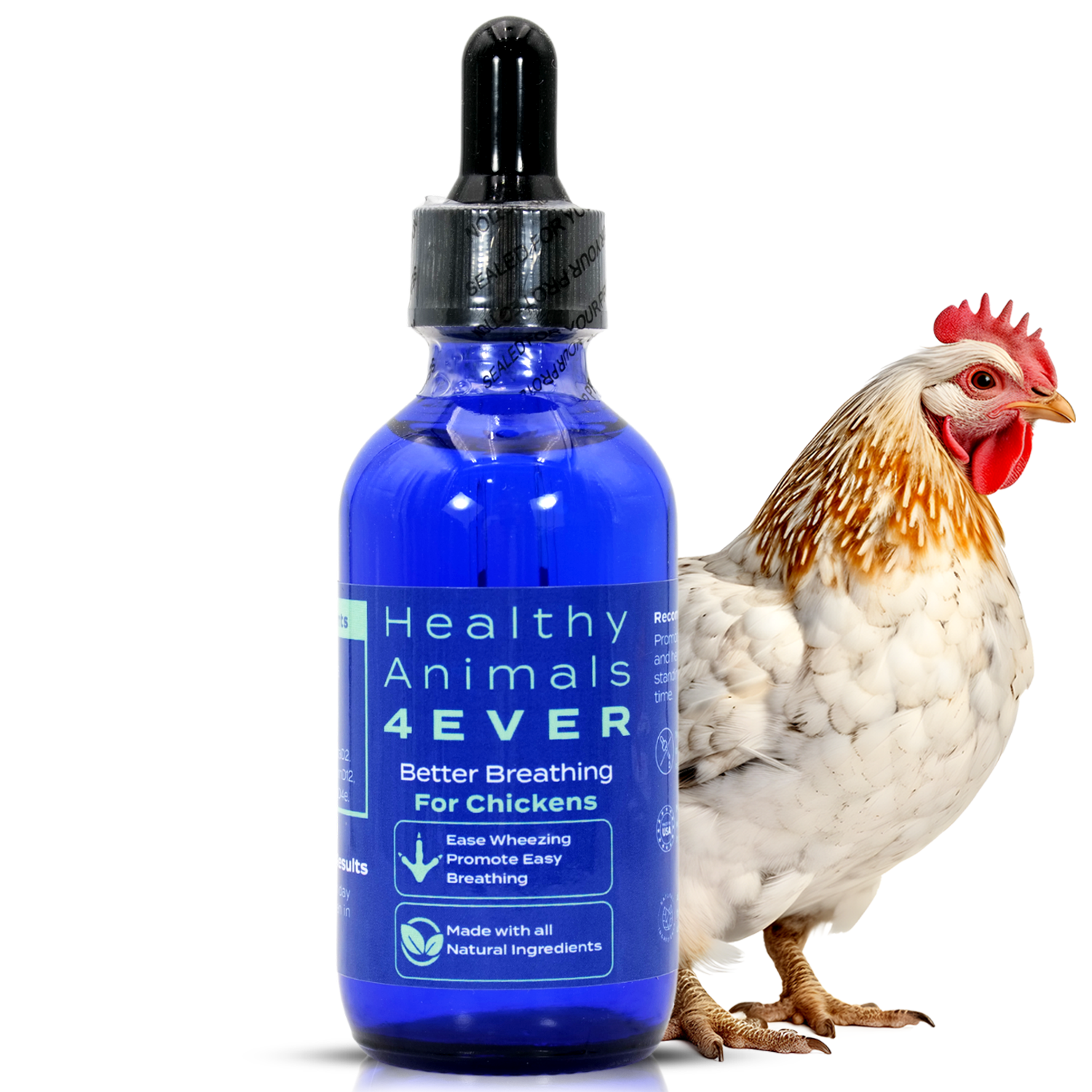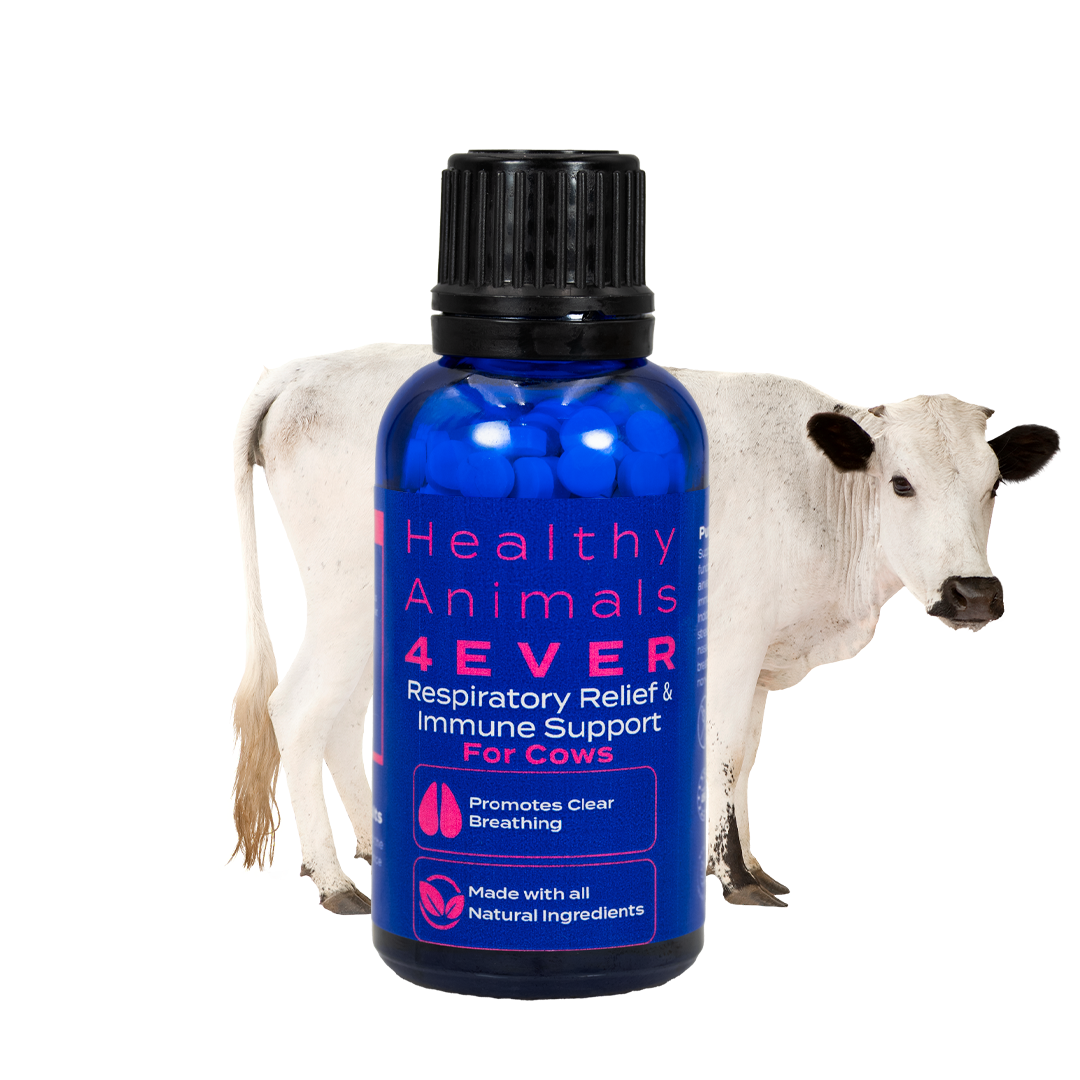Tips for Keeping Pets Relaxed During Thanksgiving Celebrations
Thanksgiving is a time for gathering with family and friends, enjoying great food, and celebrations. But while we may love the holiday festivities, our pets often experience it a bit differently. The noise, the extra people, and the changes in routine can make this time of year overwhelming for them.
For pets, unfamiliar guests, loud conversations, and constant movement can feel stressful and disorienting. Many animals thrive on consistency and calm, and the excitement of Thanksgiving can throw them off balance. As pet owners, it’s important to recognize that while we’re having fun, our pets might need a little extra support to stay calm and relaxed.
In this blog, we'll explore how you can keep your pets at ease during Thanksgiving, especially when the house gets a little chaotic. We'll look into natural remedies that can help reduce stress and simple strategies to create a calm space for them during the holiday rush. With a bit of planning, we can make Thanksgiving enjoyable for everyone, including our pets!
Instant Calm Formula with Lavender Stress Reducer is a roll-on, easily portable remedy that provides natural stress and anxiety support and promotes emotional resilience.
Common Sources of Pet Stress During Thanksgiving
Here are some main reasons your pet friend might feel stressed during this holiday.

A House Full of Guests
For many pets, a house full of new people can be overwhelming. Strangers coming in and out, loud conversations, and unfamiliar faces can all contribute to your pet’s anxiety. While some pets are social, others may feel uneasy around guests, especially if they aren’t used to large gatherings.
Loud Noises and Commotion
Thanksgiving celebrations often involve laughter, loud talking, music, and even the clattering of dishes. These sounds may be normal for us, but pets, especially dogs and cats with sensitive hearing, might find it all too much. Fireworks or other loud noises, depending on where you live, can add to their distress.
Unfamiliar Smells and Activities
With Thanksgiving comes a whole host of new smells, delicious food, candles, and cleaning products. Pets might feel unsure about the unusual aromas, which can make them feel uneasy. On top of that, the bustling activity of the day, whether it’s cooking, setting the table, or people moving around, can add to the sense of chaos for your pet.
Changes in Routine
Pets thrive on routine, and Thanksgiving can throw that out of balance. With guests arriving, mealtime may be delayed, walks may be shorter or skipped, and quiet time might be harder to come by. These disruptions can cause pets to feel out of sorts.
Separation Anxiety
If you're traveling or spending time away from your pet, they might experience separation anxiety. Whether they’re left at home or taken to a new environment, being apart from you or dealing with unfamiliar surroundings can trigger stress.
By being aware of these stressors, you can take steps to minimize your pet’s anxiety and help them feel more comfortable during the Thanksgiving festivities.
Aggression and Frustration Reduction provides natural support for aggressive dog behavior, excessive barking, nervousness, and anxiety. Helps alleviate stress and fear. All-natural formula. Easy to use.
Recognizing Signs of Stress in Pets
It's important to know how to spot when your pet is feeling stressed, especially during something like a Thanksgiving gathering. Pets can't tell us when they feel overwhelmed, but their behavior and body language often give clear clues. Here are some common signs that your pet might be stressed:
A stressed pet may act differently than usual. For instance, if your typically social dog suddenly hides or your usually relaxed cat paces around the house, these could be signs of anxiety. Some pets might become more clingy, following you from room to room, while others may isolate themselves, seeking out quiet corners away from the activity.
Dogs often show physical signs of stress through panting or drooling, even when they haven’t been active. Trembling or shaking is another common sign, especially in smaller dogs or those prone to anxiety. If you notice any of these symptoms when your pet hasn’t been exercising or exposed to heat, it could be stress-related.
If your dog or cat is making more noise than usual, whether barking, whining, or meowing, it may be trying to communicate its discomfort. Constant vocalizing can be a way of expressing that it feels uneasy or overwhelmed by the situation around it.
Pets who are stressed might show signs of aggression or irritability. For example, dogs that generally get along with people might growl or snap if they feel threatened or overwhelmed. Cats might hiss, swat, or even hide if they're feeling anxious. These behaviors are their way of saying they need some space.
Another common sign of stress is restlessness. Your pet may pace back and forth, unable to settle down, or they may move from one room to another repeatedly. This is often a way for them to cope with anxiety or discomfort, especially when they feel like they don’t have control over their environment.
Many pets seek refuge when they’re feeling stressed. Your cat might hide under the bed or behind furniture, or your dog might try to escape to a quieter room or the backyard. Some pets might even try to bolt out of open doors or windows to escape the situation entirely.
A stressed pet may lose interest in food, even if it's their favorite treat or meal. If your pet is usually a good eater and suddenly stops eating or only picks at their food, stress might be the cause. This can be particularly common when the pet feels overwhelmed by a crowd or loud environment.
Cats and dogs sometimes cope with stress by over-grooming. You might notice your dog licking its paws excessively or your cat grooming itself more than usual. This behavior can be a sign of anxiety, and if it continues, it might even lead to bald spots or skin irritation.
Paying attention to these signs can help your pet feel more comfortable and safe during Thanksgiving. The key is to stay aware of your pet's behavior and take action if it seems stressed.
Anxiety and Over-Reaction from Fear is a natural remedy for calmness and reduced fear in cats. It helps minimize stress and fear responses. Useful for generalized, separation, social, and environmental anxiety. All-natural formula. Non-drowsy relief. Easy to use.
Natural Remedies to Help Calm Your Pets
Natural remedies can be a great way to help your pet stay calm. These methods are gentle and safe, providing effective relief without needing medication. Let's explore popular options, to help keep your pets relaxed during the holiday.

1. Herbal Remedies
Certain herbs have great healing powers, here are some that can soothe and calm pets. Chamomile is one example, known for its gentle, calming effects. You can find it in pet-safe treats or teas designed for animals. Valerian root is another helpful herb that works as a natural sedative, making it easier for pets to stay calm during stressful situations.
Lavender is also great for reducing anxiety. While it should never be applied directly to your pet’s skin or fur, diffusing lavender oil into the air can create a peaceful environment for them to rest in.
2. Essential Oils
While some essential oils can harm pets, safe options like lavender or chamomile can be used in diffusers to create a calm atmosphere. Essential oil sprays are also available for pets, though you should always check that they are specifically made for animal use. It's important to never apply essential oils directly to your pet's skin unless advised by a vet.
3. Homeopathy
Homeopathy is another natural approach that can be effective for calming pets. It uses minimal doses of natural substances to stimulate the body's healing response. For stress and anxiety, several homeopathic remedies help your pet stay calm during Thanksgiving gatherings:
Aconitum Napellus (Aconite): This remedy is helpful for pets that are suddenly fearful or panicked, especially in response to loud noises or new people.
Arsenicum Album: Great for pets that become anxious, restless, or clingy, especially in unfamiliar situations. It can help with both physical and emotional symptoms of stress.
Gelsemium: Often used for pets that seem frozen or shut down due to fear or anxiety. If your pet becomes withdrawn or overly quiet in response to stress, Gelsemium could be helpful.
Ignatia: This is helpful for pets dealing with emotional stress, such as separation anxiety or a sudden change in their environment.
Homeopathic remedies are typically given in a small pellet form or dissolved in water. They are safe for most pets but should be used under the guidance of a vet knowledgeable about homeopathy to ensure you're using the correct remedy and dose.
Anxiety and Over-Reaction from Fear is a natural remedy for calmness and reduced fear in dogs. It helps minimize stress and fear responses. Useful for generalized, separation, social, and environmental anxiety. All-natural formula. Non-drowsy effect. Easy to use.
These natural remedies can be beneficial, but every pet is different. What works for one animal may not work for another, so watching how your pet responds is essential. The goal is to help keep your pets relaxed and secure during Thanksgiving festivities. Always speak to your vet before trying new treatments, especially if your pet has underlying health conditions.
Behavioral Techniques for Reducing Stress
While natural remedies can help keep your pets calm, incorporating some simple behavioral techniques can also go a long way in reducing their stress. Making small adjustments to your routine and using positive reinforcement can create a more comfortable environment for your pet.

Exercise Before the Gathering
One of the easiest ways to help your pet manage anxiety is by tiring them out before your guests arrive. A long walk or a good play session will help your dog or cat burn off energy and can leave them feeling more relaxed. Exercise helps reduce stress hormones, so when your guests show up, your pet will be more likely to nap or chill rather than react to all the excitement. A brisk walk or a game of fetch can work wonders for dogs. Interactive toys like feather wands or laser pointers can help cats burn off energy and calm down.
Positive Reinforcement and Distractions
During the gathering, keeping your pet focused on something they enjoy can distract them from the activity going on around them. Offering treats, puzzle toys, or chew toys can keep them entertained and provide positive reinforcement when they remain calm. You can even save their favorite treats or toys specifically for times when guests are around, so they associate visitors with something pleasant.
If your pet responds well to commands like "sit," "stay," or "go to bed," use these cues to give them a sense of structure during the event. Rewarding them when they follow these commands will help them stay calm and focused on you rather than on the unfamiliar people and noises.
Create a Quiet, Safe Space
Having a designated quiet area where your pet can retreat is crucial during busy holiday gatherings. This space should be away from the main activity, whether it's a separate room, a cozy corner, or their crate with the door open. Fill this space with their favorite blankets, toys, or even a piece of your clothing that smells like you. Familiar scents and a comfortable environment can make them feel safe. You can also add calming music or white noise to drown out some of the background sounds from the party.
Encourage your pet to use this space whenever they seem overwhelmed. It's essential to give them the option to escape when they need to without forcing them to stay in the thick of things.
Training for Calm Behavior
If you know your pet gets anxious around people or in busy situations, working on some basic training in advance can help them cope better during Thanksgiving. Teach your pet to go to their safe space on command, or practice a “settle” command that encourages them to lie down and relax in a specific spot. You can reinforce this calm behavior with treats, praise, or a special toy.
For pets that tend to bark or become too excitable when guests arrive, practice short training sessions where you reward calm behavior. Start with small challenges, like having a friend ring the doorbell or pretend to be a guest, and gradually work up to longer, more intense distractions.
Routine Helps
Even though Thanksgiving can throw off your regular schedule, try to keep your pet's routine as consistent as possible. Feed them at their usual times, take them out for walks, and stick to their regular playtime. Familiar routines give pets a sense of security, even when everything around them changes. Sticking to the basics will help your pet feel more grounded despite the holiday activity.
Combining these behavioral techniques with natural remedies can help your pet feel more secure and at ease during the busy holiday season. With a little preparation and attention, your pet will be better able to handle the excitement of Thanksgiving while staying relaxed and comfortable.
Aggression and Frustration Reduction provides natural support for aggressive cat behavior, excessive barking, nervousness, and anxiety. Helps alleviate stress and fear. All-natural formula. Easy to use.
Preparing Guests to Interact with Your Pets
Thanksgiving gatherings can be overwhelming for your pets, especially with unfamiliar people coming into their space. Preparation can make things easier for everyone, including your guests. Here are some tips on how to guide your guests in interacting with your pets in a way that keeps things calm and stress-free.

Set Boundaries for Your Pets
Before your guests arrive, decide what kind of interaction you want your pet to have with them. Some pets may be happy to meet new people, while others might prefer to have their own space away from the crowd. Let your guests know in advance if your pet prefers to stay in a quiet room or if they enjoy being around people. Setting these boundaries helps avoid uncomfortable situations for your pet and guests.
Teach Guests to Approach Your Pet Calmly
Pets often get nervous around loud or sudden movements, so it's important to encourage guests to approach them slowly and calmly. Explain to guests, especially children, that letting your pet come to them is best rather than crowding the animal or reaching out too quickly. This helps reduce any anxiety your pet might feel around unfamiliar faces.
Remind your guests that some pets, particularly rescue animals, might be shy or nervous around new people. By giving your pet the space to warm up at their own pace, the interaction will feel safer and more comfortable for them.
Create Rules for Children
Children are naturally curious about animals but can also be unintentionally rough or too forward. Set some clear rules for any kids who might be at your gathering, like how to gently pet your dog or cat or when to leave the pet alone. Showing them the proper way to approach and interact with your pet can be helpful, as well as always emphasizing calm and gentle movements. Keep a close eye on interactions between children and pets to ensure everyone stays safe and comfortable.
By preparing your guests and setting up guidelines for interaction, you can help reduce stress for your pets during Thanksgiving. Whether it’s through gentle approaches, creating clear rules, or offering your pet a quiet space, taking a few simple steps can make the holiday experience more enjoyable for everyone involved.
Emotional Trauma Recovery is a natural emotional trauma recovery remedy for all dogs. Promotes calmness and may help minimize anxiety. All-natural formula. Easy to use.
When to Seek Professional Help
Sometimes, despite your best efforts, your pet's anxiety might be too much to manage on your own. If your pet shows extreme signs of stress, like destructive behavior or aggression, or they're so anxious they refuse to eat or drink, it may be time to seek professional help.

Talk to your vet if you notice persistent anxiety or if your pet’s behavior changes drastically. They can rule out any underlying health issues and suggest other options, like medication or consulting a pet behaviorist. If your pet’s anxiety becomes overwhelming during events like Thanksgiving, a professional can provide guidance on how to better support your pet.
The Bottom Line
As Thanksgiving approaches, it's important to consider your pets' well-being during the celebrations. The change in their usual routine, unfamiliar faces, and increased noise can cause stress and anxiety for them. By understanding what might trigger their discomfort, you can take proactive steps to help them feel more at ease.
Whether you choose natural remedies like herbal supplements or homeopathy or focus on creating a calm environment with quiet spaces and distractions, there are plenty of ways to support your pet. Training and behavioral techniques, like positive reinforcement and sticking to their regular routine, can also make a big difference in how they handle the excitement. Don't forget to prep your guests, too. Teaching them how to approach your pet and setting boundaries will create a safer and calmer space for everyone.
Above all, be mindful of your pet’s individual needs. Some pets thrive in the midst of activity, while others prefer a little distance. By tailoring your approach to your specific pet, you can help them feel comfortable and secure, making Thanksgiving enjoyable for everyone, including your pets.














